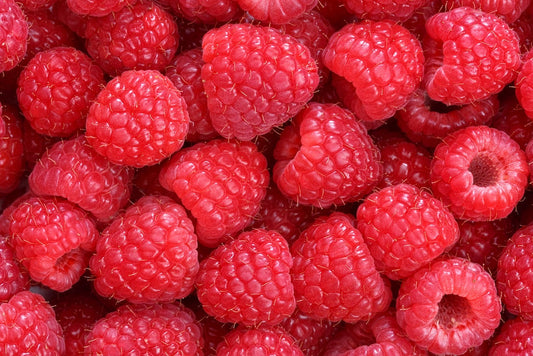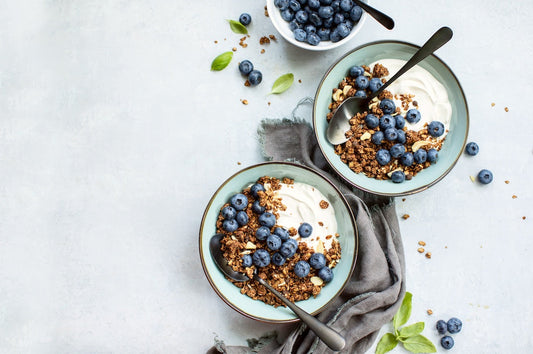The intestinal flora, also known as the intestinal microbiome or microbiota, is the totality of all microorganisms that live in our digestive tract. Bacteria make up the largest number, but viruses, fungi and other microbes also colonize the intestines.
They form a complex community of trillions of microorganisms that interact closely with our body and perform a variety of functions and important tasks.
What is the intestinal flora?
There are hundreds of different types of bacteria in the human gut (gut bacteria), most of which are extremely important for the digestion and utilization of food components, but also for our health and immune system.
Some examples of bacterial strains found in the intestinal flora are lactic acid bacteria such as bifidobacteria and lactobacilli (Lactobacillus). Bacteroidetes, Firmicutes and Actinobacteria are also important representatives.
How is the intestinal flora formed?
The development of the intestinal flora begins at birth. A newborn comes into the world with a relatively sterile intestinal flora. The colonization of a newborn's intestines depends on the type of birth.
In the case of a vaginal birth, the children come into contact with the mother's vaginal flora, while a baby born by caesarean section initially lacks this bacterial mix. However, in the first few days after birth, the intestinal flora is quickly colonized, especially by bacteria from the environment, which are transmitted through food and contact with the skin.
Over the course of a lifetime, the intestinal flora is constantly changing. Factors such as nutritional patterns, the environment, the intake of medication and general health can influence the composition of the intestinal flora.
The functions of the intestinal flora
The intestinal flora interacts closely with our body and plays an active role in various physiological processes. It forms a complex ecosystem in which different types of bacteria interact. This ecosystem fulfills important functions for our health.
It plays a crucial role in our health and is able to interact with various aspects of our body. The intestinal flora communicates with our intestinal cells and other tissues in the body, which can have various effects on our health and metabolic regulation. This interaction influences digestion, energy metabolism and even our mood.
The intestinal flora, with its trillions of bacteria, also forms a protective barrier that prevents harmful bacteria and toxins from entering the body. It supports the integrity of the intestinal mucosa.
Another important aspect of the intestinal flora is its ability to regulate nutrient absorption. It can influence the expression of certain genes in our intestinal cells that are important for the absorption and metabolism of nutrients.
In this way, the intestinal flora can help to improve the efficiency of nutrient absorption and increase the availability of important substances in the body. Certain bacteria in the intestinal flora are able to produce vitamins such as vitamin K and biotin. These vitamins are important for various bodily functions.
The intestinal flora also plays an important role in the training and regulation of our immune system. The bacteria in the intestinal flora interact with the immune cells in our intestines and help them to distinguish between harmless substances and potential pathogens. This strengthens the immune system, helps to develop an appropriate immune response and trains the immune system.
A disturbed intestinal flora can lead to an overreaction of the immune system and increase the risk of allergic reactions, food intolerances and autoimmune diseases. The intestinal flora and the condition of the intestinal wall also play a significant role in the development of chronic inflammatory bowel diseases (irritable bowel syndrome, ulcerative colitis, Crohn's disease, etc.).
Strengthening digestion with prebiotics
Factors that influence the intestinal flora
The composition of the intestinal flora can be influenced by various factors:
Nutrition
With the right diet, rich in fiber, fermented foods and healthy fats, a healthy intestinal flora can be specifically supported. Consuming high-fiber foods such as vegetables, fruits, whole grains and legumes promotes the growth of good bacteria in the intestinal flora.
The digestion of fiber produces short-chain fatty acids, which promote this “good bacterial growth”. Foods that are particularly rich in fiber include Jerusalem artichokes, chicory, artichokes, flax seeds and black salsifies. They are therefore highly recommended and valuable in terms of the production of short-chain fatty acids.
Medication
Taking antibiotics can temporarily disrupt the intestinal flora, as they not only kill pathogenic bacteria but also reduce the number of beneficial bacteria. It is important to take probiotic supplements or probiotic foods ( probiotics) such as natural yoghurt, kefir, sauerkraut, kimchi and fermented vegetables when taking antibiotics to support the intestinal flora.
Particular attention should be paid to building up the intestinal flora after antibiotic treatment! Sometimes a comprehensive intestinal cleansing may be necessary to enable the intestinal flora to resume its extensive tasks and functions.
How do you build up a healthy intestinal flora?
Stress and lifestyle
Chronic stress and an unhealthy lifestyle, such as a lack of physical activity and poor sleep habits, can have a negative effect on the microbiome. Managing stress in a healthy way and a balanced lifestyle with sufficient exercise and sleep are important for healthy gut flora.
How can you maintain healthy gut flora?
The following measures can be helpful to support your gut health:
Healthy nutrition
A healthy diet with sufficient omega-3 fatty acids from fish, flaxseed and other omega-3-rich foods, as well as polyphenols from fruits, vegetables and tea, keeps your intestinal bacteria fit.
High-fiber diet
A balanced diet with a variety of fiber from fruits, vegetables, whole grains and legumes promotes the growth of good bacteria in the intestinal flora.
Oats
When it comes to the right nutrition for your gut flora, oats must be mentioned.
Oats are one of the healthiest domestic cereals. Oat flakes are a true superfood. They impress with a large amount of fiber, protein, vitamins K, B1 and B6, and important minerals such as copper, zinc, phosphorus, magnesium, calcium and potassium. They are great for the skin and, above all, healthy for the intestines. Oats are particularly good for the gastrointestinal mucosa and strengthen your microbiome in the gut.
There are various ways to eat oats. As a breakfast to strengthen your gut flora in the form of a warm porridge or as a cold overnight oats variant. Soups or casseroles with oats are also a good option.
If you don't want to prepare porridge or muesli from oats yourself, there are great ready-made mixtures from Verival. Here are a few ways you can optimally supply your intestinal flora:
- Oats
- Whole grain flakes
- Flakes Basic muesli
- Classic porridge
- Prebiotic porridge Raspberry-blueberry
Probiotics and prebiotics:
Probiotic foods such as natural yoghurt, kefir, sauerkraut, kimchi and fermented vegetables contain living microorganisms that can support the intestinal flora. Prebiotics, such as inulin, which is found in many high-fiber foods, promote the growth of beneficial bacteria in the intestinal flora.
Avoiding harmful substances:
Consuming alcohol, tobacco and highly processed foods, especially fast food, can significantly affect your gut microbiome. It is advisable to reduce your consumption of these substances.
Stress management:
Reducing stress and learning relaxation techniques can have a positive effect. Regular exercise, adequate sleep and stress management are important for a healthy gut flora.
Healthy lifestyle:
A healthy lifestyle with sufficient exercise, stress management and adequate sleep helps to maintain a healthy intestinal flora.
Conclusion
The intestinal flora and a healthy gut play a crucial role in digestion, the immune system and overall health. In healthy people, the intestinal flora consists of a variety of microorganisms, especially bacteria, that interact closely with the body.
A healthy intestinal flora aids digestion, strengthens the immune system and influences the absorption of nutrients. Various factors such as diet, medication, stress and lifestyle can influence the composition of the intestinal flora. A fiber-rich diet, the consumption of probiotic and prebiotic foods and a healthy lifestyle can help keep the intestinal flora healthy.
FAQ
What are the symptoms of a disrupted intestinal flora?
A disrupted intestinal flora can lead to various symptoms, including digestive issues such as bloating, diarrhea or constipation, increased susceptibility to infections, unexplained fatigue, skin problems and mood swings.
Can you influence the intestinal flora if you have to take antibiotics?
Yes, taking antibiotics can temporarily disrupt the intestinal flora. However, it is possible to support the intestinal flora after antibiotic treatment by taking probiotic foods or dietary supplements that contain healthy bacteria.
How can you support gut flora in children?
A healthy diet rich in fiber and probiotic foods can support gut flora in children. It is also important to limit the use of antibiotics to when they are needed and to practice good hygiene to minimize the transmission of harmful bacteria.
What foods are good for gut flora?
Foods rich in fiber such as fruits, vegetables, whole grains, legumes, and fermented foods like yogurt, sauerkraut, and kefir are good for your gut flora. These foods provide nutrients for the good bacteria and promote their growth.
Oats are particularly important in this regard. They keep you full for a long time, contain valuable nutrients, and are really good for your gut flora.
























